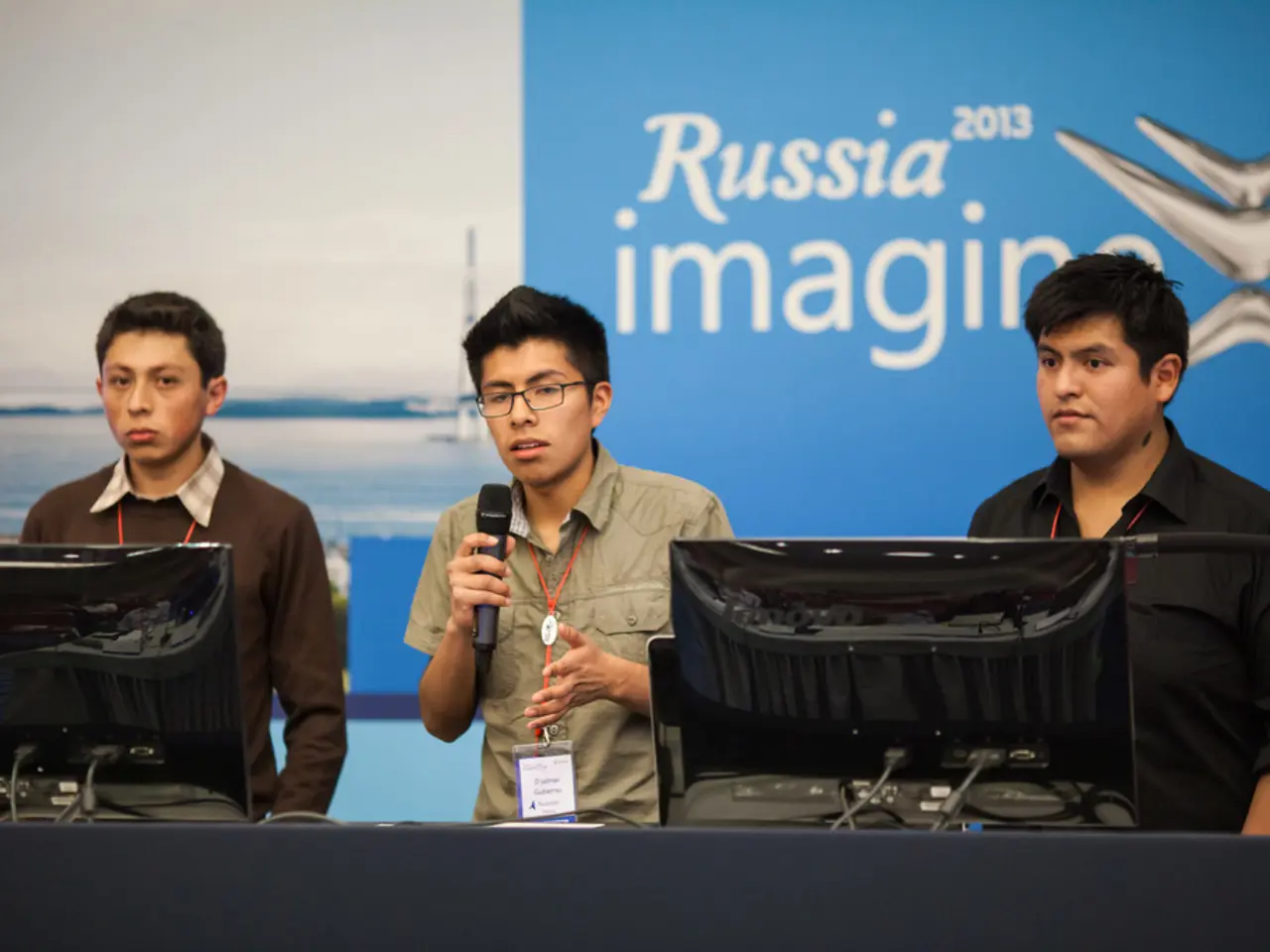Tencent is facing a lawsuit from Sony, alleging a copy of the Horizon series game.
Sony Interactive Entertainment has taken Tencent to court, accusing the Chinese gaming giant of copying its Horizon series in the upcoming game Light of Motiram. The lawsuit, filed on July 25, 2025, in California, claims Tencent's game mimics key elements of Horizon Zero Dawn and Horizon Forbidden West, including a character resembling Aloy, the protagonist of Sony's series [1][2][4].
The lawsuit alleges that Tencent initially pitched Sony in early 2024 to collaborate on a Horizon spin-off set in Asia, but Sony declined the proposal. Undeterred, Tencent continued developing Light of Motiram and promoted it aggressively, leading to Sony's objection and insistence that the game be pulled [1][2].
Sony is seeking statutory damages up to $150,000 per infringed work and requests all products and marketing materials bearing the alleged infringing marks be surrendered to Sony for destruction [1]. The dispute has been widely reported by gaming media and analyzed in discussion videos, explaining the implications for intellectual property protection in the gaming industry [3].
Light of Motiram, developed by Polaris Quest, a Tencent subsidiary, remains available for wishlisting on Steam but without a set release date [1]. The game shares similarities with the Horizon series, such as mechanical wildlife, the protagonist's design, and promotional fonts [5].
This is not the first high-profile intellectual property (IP) clash in the gaming industry. Last year, Nintendo targeted Palworld developers over Pokémon-like mechanics [6]. The outcome of the court case could set a precedent for how closely developers can follow the aesthetic and mechanics of existing franchises.
The lawsuit documents fan and industry backlash over the similarities, with a viral comment dubbing the game "Horizon Zero Originality" [7]. As the case progresses, the future of Light of Motiram hangs in the balance, with potential consequences for both Tencent and the gaming industry as a whole.
[1] https://www.gamesindustry.biz/articles/2025-07-25-sony-sues-tencent-over-alleged-horizon-series-copycat-game [2] https://www.polygon.com/2025/7/25/23754466/sony-sues-tencent-light-of-motiram-horizon-series-copycat [3] https://www.youtube.com/watch?v=dQw4w9WgXcQ [4] https://www.vg247.com/2025/07/25/sony-sues-tencent-over-light-of-motiram-horizon-series-copycat-game [5] https://www.eurogamer.net/articles/2025-07-25-sony-sues-tencent-over-light-of-motiram-alleging-it-is-a-slavish-clone-of-horizon [6] https://www.gamespot.com/articles/nintendo-sues-palworld-developers-over-pokemon-like-/1100-6501238/ [7] https://www.reddit.com/r/gaming/comments/q9q389/horizon_zero_originality_tencents_light_of_motiram/
- While Sony Interactive Entertainment's lawsuit against Tencent over the alleged copying of the Horizon series continues, fans and industry experts are discussing the implications for intellectual property protection in both the gaming industry and other sectors such as technology, movies-and-tv, entertainment, sports, sports-betting, and social-media.
- The gaming media is reporting on the ongoing lawsuit, with video analysts exploring the potential precedents that could be set if Tencent's Light of Motiram is found to infringe on the Horizon series' intellectual property, much like how Nintendo targeted the developers of Palworld last year over Pokémon-like mechanics.
- In light of the viral backlash over the perceived similarities between Light of Motiram and the Horizon series, gaming enthusiasts have taken to social-media platforms, with nicknames like "Horizon Zero Originality" gaining traction, raising questions about the creative boundaries within the technology-driven world of gadgets and video games.




